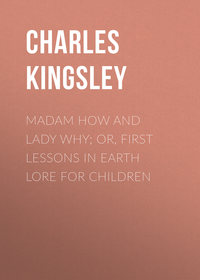Kitabı oku: «Madam How and Lady Why; Or, First Lessons in Earth Lore for Children», sayfa 11
Bir şeyler ters gitti, lütfen daha sonra tekrar deneyin
Türler ve etiketler
Yaş sınırı:
0+Litres'teki yayın tarihi:
30 mart 2019Hacim:
251 s. 2 illüstrasyonTelif hakkı:
Public Domain